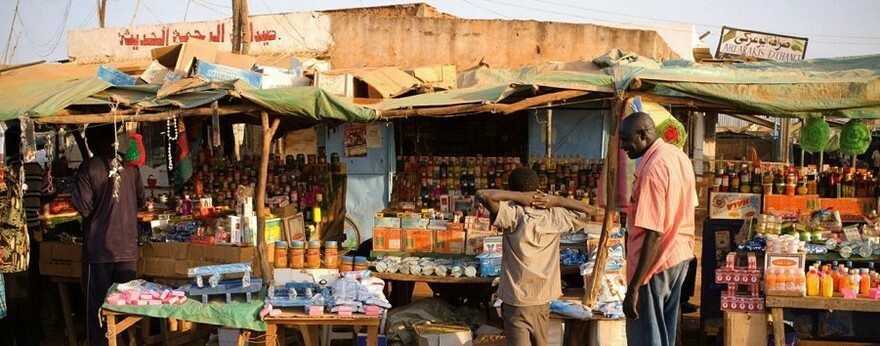A cross-section of Kuajok town residents in Warrap State have complained of high prices of commodities in the local market.
Speaking to Radio Tamazuj, the residents blamed the state and national governments for doing little to cushion them against the runaway US dollar rate. They said the compounding situation has drastically weakened the local currency, the South Sudanese Pound.
Deng Angok Angok, a resident, said they expect the situation to worsen based on last week’s sharp increase in prices of most food items.
“We are experiencing a very terrible and high price of food commodities. As citizens, we are really confused about what is really happening. Why have traders suddenly increased the prices of foodstuff? Like last week, there was no mobile phone airtime at most sale points,” he said.
Angok said most restaurants have increased food prices based on the rise in food commodities and less supply of the same.
“We are confused about the availability of goods. Do traders hoard goods, or are they unable to bring them to Kuajok? A plate of meal in the restaurant ranged between SSP1,500 to SSP2,500 depending on the food and quality of food one orders, and today, it ranges between SSP1,800 to SSPSSP4,000,” Angok added.
A half-litre bottle of water was SSP700 and now sells between SSP1,000 and SSP1,500 in shops and restaurants.
Soft drinks, including sodas and juice products, currently sell at SSP1,200 up from SSP1,000. Mango and Guava juices sell between SSP1500 and SSP2,000 due to their quality.
He appeals to the state government to protect consumers who bear the pain of the inflation rate.
“I want the government to investigate the traders and find out if the sharp increase in prices of commodities in the market is because of the dollar rate or if it could it be something fishy with the traders,” Angok said.
Jenifer Atap Arou, a mother of four, says she finds it hard to feed her family as commodity prices have shot up.
“The prices are very high in the market. When you go to the Kuajok commodity market with little money, you will come back without something. A kilogram of beef and goat meat was SSP3,000 and SSP4,500, respectively, before and currently the same cost, SSP5,000 and SSP7,000, respectively,” she said.
She added, “One roll of groundnut paste was SSP200, and it has risen to SSP300; a quarter kilogram of sugar currently sells at SSP 400 and a kilo at SSP1,200 compared to when it was SSP 800.”
Atap appealed to state authorities to intervene in the US dollar rate, blaming its surge on the rising food prices in the Kuajok market.
Some traders who spoke to Radio Tamazuj said the high prices of commodities were related to foreign currency’s exchange rate in the local black market and multiple tax collection points.
Mohamed Adam, a local trader, said: “Prices are very high because the dollar exchange rate increased to SSP1,260 per US dollar in Juba compared to SSP1,160 against the dollar in Kuajok. We buy goods at very high prices in Juba plus the cost of transportation and off-loading”.
Mohamed Abdalla Ibrahim, a Sudanese trader who purchases his supplies in local currency, says prices of local produce have also shot up in the Wau market.
“I am a retail trader who buys goods from Wau town. A crate of water was SSP5,000, but manufacturers added SSP1,000 to sell it at SSP6,000. When you add other losses on checkpoints, off-loading, security and cleanliness, it increases one bottle of water,” he said.
Angelo Mathil Gum, Warrap State Chairperson of the Chamber of Commerce, says the situation is beyond their control, saying it should be addressed by the state and national governments.
“The reason for prices shooting up is because of the high rate of the US dollar against SSP; it used to be SSP116,000 for one hundred US dollars, but now it is between SSP120,000 and SSP122,000, and it is very high in Juba because the businesses are being run by foreigners. It is also hard to get hard currency in the state,” he said.
Dut Gop, the Director General at the State Ministry of Trade, said efforts were being made by state authorities to address some of the reasons advanced by traders for the runaway inflation rates.
“The problem is that the US dollar shot up by 20 percent because a bottle of soda, which sold at SSP800, now sells at SSP1,000, and that is automatically affected by traders without the knowledge of the state government,” Gop explained.
“We will set rules in our price control system, and that needs the assembly to revisit the State Revenue Act so that we can set prices. Alternatively, we plan to engage the government as a ministry to seek tax exemptions on consumable goods,” he added.




